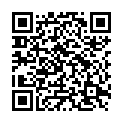Module content:
Fundamentals of Electrical Engineering:
• Electric field with quantities and methods:
charge, current, current density, potential, voltage, field strength, force on charge carriers,
Ohm´s law, resistance, conductance, electric circuit, source voltage, voltage drop, power,
electric displacement flow, capacitance, EMC
• Magnetic field with quantities and methods: magnetic poles, source-free fields, right-hand rule,
magnetic flux, induction flow-through, field strength, flow-through law, magnetic voltage, magnetic
resistance, permeability, magnetic field constant, hysteresis, Lorentz force, induction law, generator,
self-induction, counter-induction, inductance, transformer, eddy currents, energies and forces in magnetic field,
passive components
• Calculating circuits with direct current:
Kirchhoff´s laws, basic circuits, short circuit, open circuit, adaptation, energy and
power, efficiency, non-linear resistances, graphical determination of operating point, resistance networks,
meshed networks, systematic network analysis using the node and mesh method
• Calculating circuits for alternating current:
Generating alternating current with an electrical machine, time average, effective value, passive sign convention,
voltage and current at capacitance and inductance, series circuits with
alternating current, pointer diagrams, parallel circuits with alternating current, complex pointer in
in alternating current technology, complex representation of resistances and conductance values with alternating current, active power,
reactive power, apparent power, series and parallel resonant circuits, reactive power compensation.
• Three-phase electric power (three-phase current):
connected three-phase system, power in the three-phase system, star/delta switching, neutral conductor currents,
frequent cases of asymmetrical faults
Electric drive systems:
• Torque generation, electrical and mechanical power, rotary field generation and torque generation in
three-phase machines
• DC machines:
design, mode of operation, armature reaction, equivalent circuit, characteristic curve, generator and motor operation,
speed setting, special designs, speed control
• Three-phase asynchronous machine:
Design, operating principle, equivalent circuit, vector diagrams, characteristic curve, current locus curve, current displacement rotor, Three-phase asynchronous machine on
frequency inverter
• Synchronous machine:
design, rotor designs, excitation devices, equivalent circuit, vector diagrams, characteristic curve, current locus curves
• DC and three-phase motors on single-phase alternating current
Electrical engineering laboratory:
The “Elektrotechnisches Labor” (Electrical Engineering Laboratory) component provides practical training and enables the application of the knowledge acquired in the lectures by means of the following tests/exercises/experiments: Unloaded and loaded voltage divider, bridge circuit using the deflection method, filter circuit (RC low-pass filter), series resonant circuit, symmetrical and asymmetrical loading of a three-phase system (star circuit), three-phase asynchronous machine controlled by means of a frequency converter, recording a characteristic curve on a slip ring motor, fan control (bridge circuit with temperature-dependent resistor, threshold switch and transistor switch).
[updated 28.04.2023]
|

